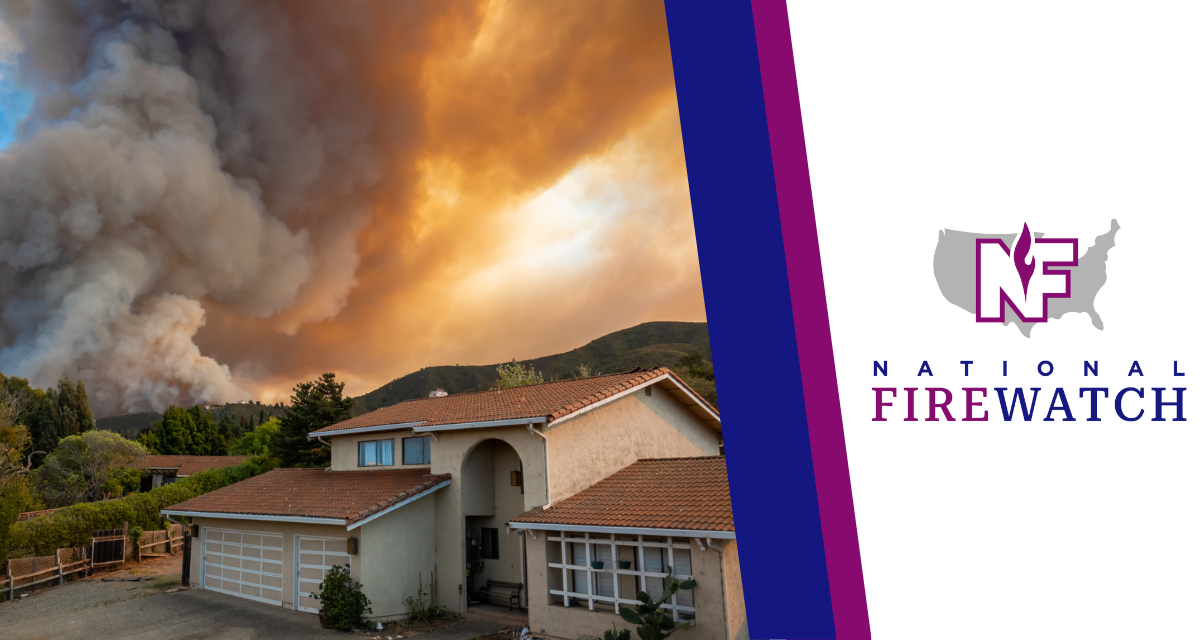In 2024, disasters cost American organizations $182.7 billion in damages, according to Climate.gov, with the late spring and summer months witnessing the most damage. Memorial Day and summer weather are approaching fast, and droughts are expected in many parts of the country. Fire risks will rise as dry spells persist.
Florida and Georgia, though no strangers to disaster damage, are seeing increasing upticks in wildfire damage during the dry parts of the year. Our team at National Firewatch is noting a spike in fire watch inquiries from those regions at the time of this article’s writing. Both Florida and Georgia have instituted widespread burn bans that could affect how contractors, event venues, and construction teams are able to operate in the months ahead.
Given the increasing fire risks in Florida and Georgia, fire watch may be required for a wider variety of heat application tasks. Your fire marshal may shut down a project or order an evacuation if trained fire watch guards are not on site during periods of heightened fire risk. By connecting with a reliable fire watch provider in advance, you can ensure your team is prepared for changing requirements at your job site.
Compliance Required During Burn Bans
Life does not shut down during periods of increased risk, construction projects continue, supply chains are maintained, and companies need to meet deadlines. You may manage a project that includes heat application tasks such as welding, cutting, or torching while burn bans and other advisories are in place.
When this happens, your team may need additional permits from your fire marshal or other local authority. There is a good chance that, for work to proceed, you’ll need to deploy fire watch guards on-site while the Hot Work is being done.
Fire Watch Guards for Hot Work
Regardless of on-site conditions, fire watch guards are required whenever hot work is being done at a location that lacks industrial safety equipment, like at a construction site. It is very common for teams to have fire watch built into their project management schedules from the earliest stages of planning.
During periods of increased risk, like the burn bans currently in place across Georgia and Florida, fire marshals will likely require fire watch in a wider range of scenarios. Cutting jobs that are usually permitted without fire watch supervision may now require it. If you have an upcoming project that may be affected, check with your local fire authorities and connect with a reliable fire watch provider as soon as possible.
Disasters can cause major outages that affect entire regions of the country. Rural communities in Florida and Georgia can be hit especially hard when this happens. Wildfires in the months ahead could cause outages that force fire marshals to order evacuations and shutdowns to keep organizations safe.
Fire Watch for Outages
If you manage a medical facility or care home, evacuations under these conditions could be disastrous. National Firewatch receives many emergency inquiries from folks in these circumstances, and we can usually deploy guards within hours to prevent shutdowns. Nonetheless, we always advise folks in our network to partner with a reliable fire watch provider in Florida or Georgia in advance so you can access expert fire watch guards when needed.
Contact National Firewatch
Our expert fire watch guards have been proud to serve Florida and Georgia since 2010. In that time, we’ve built our team up to the point where we can deploy guards to most major centers within hours if you need fire watch guards on-site today, National Firewatch is your best option.
We wish you and your teams a safe and productive summer. Stay informed about local weather conditions and their effects on your upcoming projects. Be sure to develop a risk management plan that includes contingencies for fire watch, and contact us when you need guards on-site.

